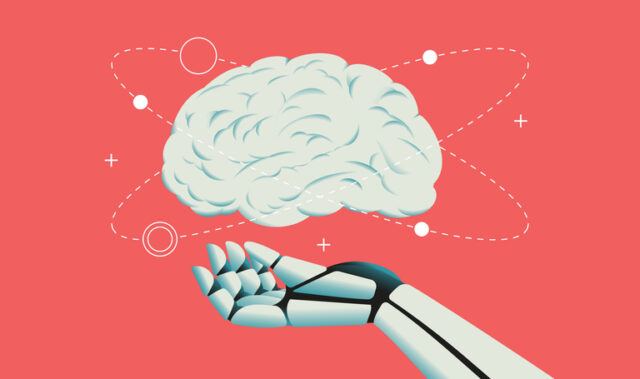Interesting times: A quick look at AI’s impact in and out of marketing
Artificial Intelligence continues to shape a rapidly evolving digital landscape right before our eyes. As a marketing agency, we’ve been particularly interested in how it may affect the marketing and advertising industry. But, that’s not to say we haven’t seen it used in other aspects. We asked several Reuben Rinkers to weigh in on the most surprising or interesting applications of AI (marketing-related or not) that they’ve seen to date. While some cited examples from the marketing world, others were able to pull from personal experiences.
JG:
I’ve seen some interesting advertising work that has incorporated AI by actually poking fun at the technology as a way to deliver strong and memorable messages. Here are two ad campaign examples…First up is this campaign by Symterra, a project management software company that does not want you to become enraged by paperwork. Next is this Reddit campaign by the Myrtle Beach Area Convention & Visitors Bureau, aka Mitarry Best. Whether these are fully contrived or developed in part using actual AI doesn’t matter – both are memorable!
Eric:
Sephora created a campaign that demonstrated how biases infiltrate our perspectives, even in AI. The campaign’s “Never Guilty” TV scripts (which ran in Italy) were created with ChatGPT and forced the viewer to think about how AI learns. In other words, AI doesn’t see biases as good or bad. It just sees them as patterns from source material to emulate — data that it uses to formulate its “intelligence,” in order to appear more human. The resulting work is chilling. But the realization of why serves as a reminder of how much more AI and its creators have to learn.
Clint:
ChatGPT was extremely helpful in planning a recent family vacation. Providing the tool with pertinent details makes a big difference in the quality of guidance. My prompt was:
My family of x is traveling to x from x date to x date. We like to walk, sightsee, eat local food, etc…Can you provide some suggestions for an itinerary?
ChatGPT did a good job of providing suggestions for morning, afternoon and evening activities. These were sequenced in a logical geographic order. The application offers lots of interesting historical information and allows users to drill down with follow-up questions.
While the activity suggestions were good, , commercial recommendations (hotels, restaurants, flight and transportation information) were a challenge. Perhaps this will improve over time but, for now, travelers will need to use multiple resources for planning their vacations.
Michelle:
The use of large language models (LLMs) instead of generalist models like GPT-4 intrigues me, especially in the healthcare space to advance research on topics like social determinants of health, for example. It has huge potential to advance healthcare among all other industries. But, as with other applications, algorithmic bias must be monitored carefully and in general, AI will require a lot of regulation.
Kaylan:
As a 2024 bride, my social platform targeting has been working overtime. I have noticed a huge trend of using AI to help brides and grooms with the wedding planning process. From finding the perfect vendors to budget tracking to writing your vows, AI is definitely showcasing its strength to streamline the stressful process of planning an event. While I welcome almost any way to help relieve some of the stresses of wedding planning, I’m not quite sure I like the idea of AI writing vows.
Thoughts? How do you feel about incorporating AI? Any interesting applications you’ve seen?

